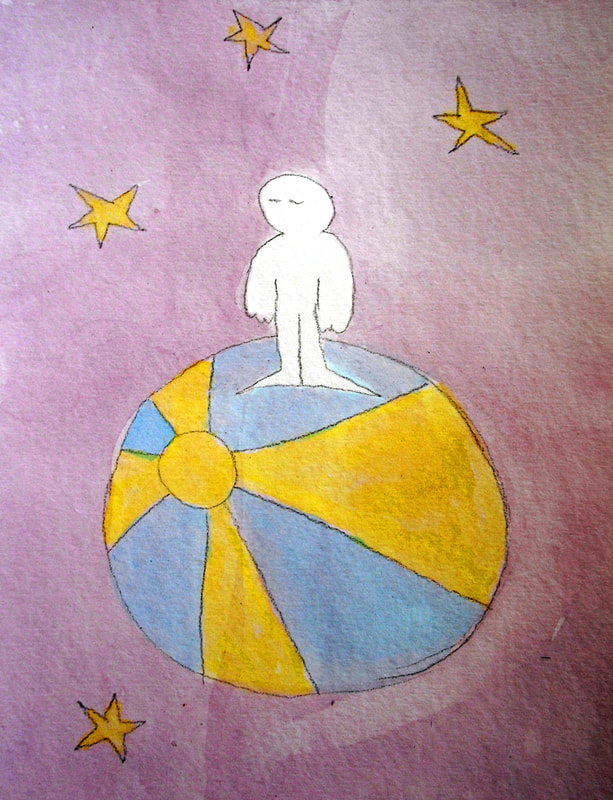|
There seems to be a growing acceptance of the fact that the earth is beginning to struggle to accommodate the needs – or, lets be honest – the outright greed of modern man. We can then, perhaps, ask such questions as:
1. What can be done to cure the greed that could lead to humanity's destruction? The overcoming of greed is a central theme in the teaching and practice of Buddhism which is thankfully beginning to find a stronger voice. We are trying to promote a more interdependent view of the world that generates empathy. What we can add to this is firstly that spiritual pleasures, meditation for example, are very eco-friendly; secondly we can give more emphasis to the value of disciplined conduct on the part of the individual. The practical value of this is, of course, recognised, but the power of such discipline to deeply change our relationship to nature is often underestimated. I lived in the tropical forest for years, not permitted by my monk's discipline to kill insects. Over time this transformed my relationship to the ants and mosquitoes that were a constant pest – and consequently to the whole environment into one of harmless communion. 2. What about the helpless anger or despair of the sufferers of this greed? Are there, for example, hidden causes here for the apparent increase in delinquency amongst young people? Or are my eyes on the world just getting too old and sensible? I believe that Buddhism as a source of faith and as a deep psychology can help us understand and manage the emotions related to death or impermanence. It is surely these emotions that turn us away from facing the issues. In Buddhism we teach people both the wisdom to let go of attachment to things and the compassion to stay with those things, hence winning a lighter and more caring touch on life: Recently we had someone come to the monastery to commemorate the recent death of their favourite Aunt. When the ceremony was all over they were trying to talk to the monks but their little girl would not settle. An elderly lady friend of ours in the room was pointed out and recommended as her new Aunt, saying, “there are lots of them in the world.” 3. What if the planet cannot be saved? Then where are we to find hope? We can perhaps see for the first time in the current context how humanity up until now found this in ‘the new generation’. Then what if there were to be no more mankind? Perhaps we find hope in the preservation of human knowledge – the computer chip blasted into space? Yet so much of this knowledge surely concerns and is hence based upon, the earth that may be lost. The earth that one day, however long in the future, must be lost. To me our greatest if not our only eternal hope is the Dhamma. Dhamma is a source of universal truth. If we can see the full potential Dhamma as it really is, as a part of nature that can never be destroyed, we can have hope. We have a new purpose in life promoting this understanding, this faith in ourselves and in others. If we get this right this is in no way a negation of the transitory aspects of nature. It is rather seeing the Dhamma as the highest expression of nature, its highest evolution – the way that an aspect of nature, one that I believe can be formative, can truly find a permanent basis. I would argue that the enlightened mind, free of limitation in time and place, is capable of reaching back out to the universe, so to speak, from its refuge in the beyond. I think it is possible to argue, based both on philosophy and the experience of deep meditation, that this can be true. This is not a such a simple matter, however. We need to find a number of ways, philosophical and meditative, through which we free up the mind from its material constraints. I have tried to tackle this in the recent book 'Virtue and Reality'. Just to try to give you a taste, to quote from Gregory Bateson: “...a miracle is a materialists idea of how to escape from materialism... the reply to crude materialism is not miracles but beauty.” - Mind and Nature To learn how to understand like in this quote can also be to see like this and to find a new depth of appreciation for nature. This is to see with the quality of 'muditā' (sympathetic joy) at nature's achievement. If we can find faith in all this as a possibility, we have a hope in those enlightened already and those to come as being able to take human consciousness forward beyond its material constraints. We see the Earth is the perfect training ground for the mind striving for enlightenment and therefore we do whatever we can to preserve it. Having a few more enlightened beings in the world already will also certainly help to preserve the Earth. Interestingly, many Thai Buddhists believe that while there are enlightened beings on the Earth, the Devas (heavenly beings) will protect it from destruction. This is inspiring but I hope such beliefs don't take the place of ecological responsibility on the human level! To sum up, in addressing these three questions I hope we have done something to tackle the human greed, hatred and delusion respectively that are both at the source of the ecological crisis and are the results of it; they are indeed the forces behind this destructive cycle as a whole, as they are behind all other suffering. Comments are closed.
|
Categories
All
|
Open The Sky - Reflective and creative work by Ajahn Kalyano

